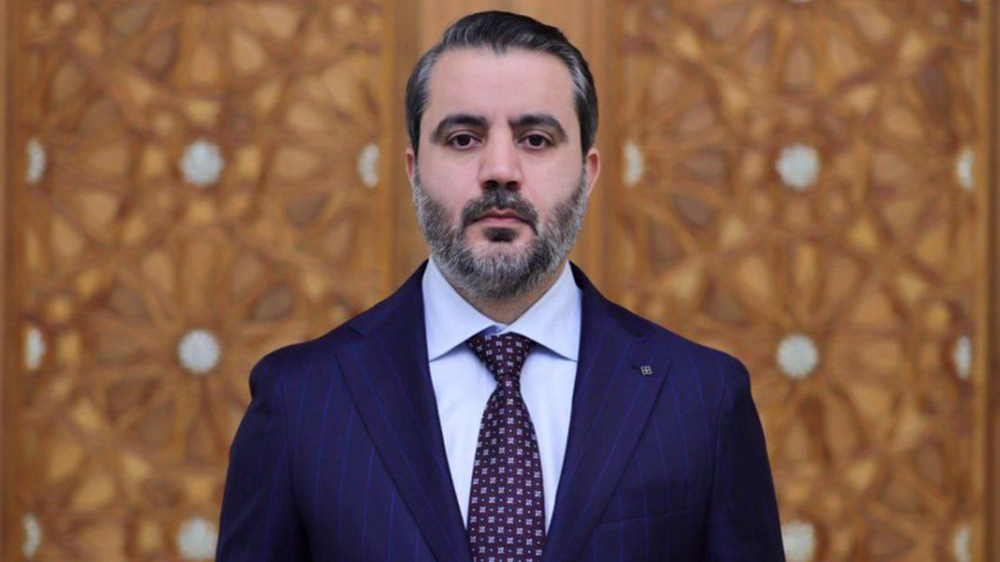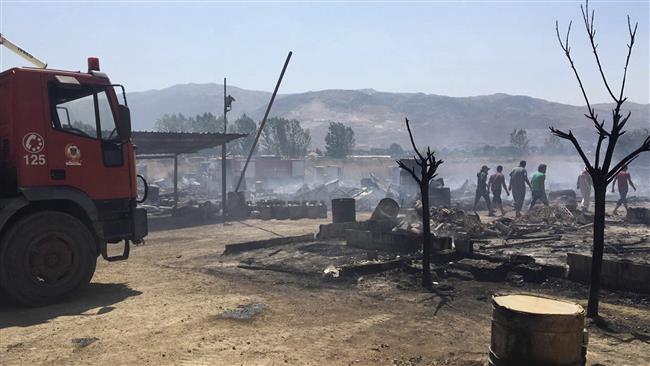Beirut, Damascus working together for return of Syrian refugees
Lebanese and Syrian officials are working together to facilitate the return of thousands of refugees who want to return to Syria, a Lebanese official says.
"There are contacts with the Syrian authorities about thousands of Syrians who want to return to Syria," Lebanon's head of the General Security agency Major General Abbas Ibrahim told reporters on Thursday.
"The stay of Syrians in Lebanon will not go on for a long time. There is intensive work by the political authority," he added.
The official did not give a timeframe for the return of refugees, but noted that some part of the plan will take place in the short term.
Nearly 1.5 million Syrian refugees have been living in Lebanon since 2011, making up a quarter of the country’s population.
Last December, the UN refugee agency, UNHCR, said more than 50 percent of the Syrian refugees in Lebanon live in extreme poverty and are highly vulnerable than ever before.
Many Lebanese officials, including President Michel Aoun, are demanding that the government facilitate the return of the Syrian refugees, arguing that the Syrian government has managed to purge many areas of terrorists and the refugees can now safely return to their homes.
Meanwhile, Lebanese Prime Minister Saad al-Hariri has expressed opposition to any forced eviction of refugees.
The UNHCR said it was "aware of several return movements of Syrian refugees being planned to Syria."
"UNHCR is in regular contact with the General Directorate of the General Security [of Lebanon] on this issue," the UN agency said in an emailed statement in response to a question from Reuters.
In April, several hundred Syrian refugees returned to Syria from the Shebaa area of southern Lebanon under the supervision of Lebanon's General Security in coordination with Syrian officials.
Aid agencies, however, have said it is too early for returns to begin.
A conference co-hosted by the UN and the EU later in April said that conditions for the return of refugees have not been fulfilled yet, noting that voluntary repatriation may not take place in safety and dignity.
‘All wars have rules. All of those rules have been broken’ by Israel
VIDEO | Report flags India’s violation of rights of Rohingya detainees
Turkey's foreign minister meets Syria's de facto leader in Damascus
'Next to impossible' to rescue patients from Gaza's Kamal Adwan Hospital: Director
VIDEO | Vietnam current prosperity
Report blames gasoil exports for shortage at Iranian power plants
VIDEO | Hind Rajab Foundation names Israeli war criminals vacationing after Gaza genocide
VIDEO | Australians rally for Gaza ahead of Christmas festivities













 This makes it easy to access the Press TV website
This makes it easy to access the Press TV website